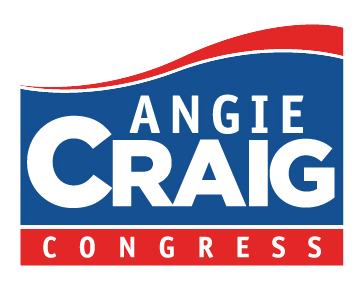By: Aaron Greg
7/2/2020
Federal lawmakers’ seething frustrations over an important but troubled small-business aid program boiled into public view Wednesday as James Rivera, a longtime federal official who is overseeing the Small Business Administration’s disaster-loans program, testified before Congress for the first time since the coronavirus pandemic began.
Over the past four months, the SBA’s Office of Disaster Assistance has scaled up to meet a crush of loan applications as millions of small business desperately sought help.
After a slow start, the SBA has belatedly worked through the bulk of its backlog: As of June 27, it had processed just over 2 million loans for a total of $127 billion, according to figures published by the SBA.
“The loan numbers and dollars we are experiencing have been unprecedented … this more than doubles the amount of disaster aid provided in the entire 67-year history of the agency,” Rivera said at a Wednesday hearing before the House Committee on Small Business.
But lawmakers said Rivera’s office fell far short of expectations even given the unique, historic challenges associated with this economic crisis.
“The administration of this program has been absolutely terrible,” said Rep. Angie Craig (D-Minn.), after recounting a story in which it took the SBA more than a week to check on the status of a loan application for a business in her district.
The SBA’s Economic Injury Disaster Loans program, known as EIDL, is different from the $660 billion Paycheck Protection Program that was created by the Cares Act. The EIDL program provides smaller loans with more flexible terms, so that more of the assistance can be spent on capital expenses rather than paychecks. The EIDL loans are received, processed and disbursed directly by the government rather than private lenders, making them a preferred option for those who do not have good banking connections.
The EIDL program has significant experience responding to natural disasters such as hurricanes and wildfires. But the coronavirus pandemic presented a different challenge entirely, as small businesses in every state felt the economic downturn all at once.
“Gosh, the last three months have been … it’s been a tough road obviously,” Rivera said Wednesday.
He added that viruses were not a part of the SBA’s disaster response playbook until mid-March, when the program was activated for coronavirus assistance.
The agency was completely overwhelmed and failed to process the loans in a timely manner. The office added thousands of additional loan officers to its existing staff, and it outsourced much of its evaluation work to Rocket Loans. But it took the SBA 41 days on average to process the loans, Rivera said, far longer than the three-week window the agency had advertised.
Rivera faced tough questions Wednesday about what lawmakers called “unacceptable” customer service from his agency, as businesses received little or no communication from the government as they waited for loans. Lawmakers appeared especially frustrated by the SBA’s failure to communicate important policy changes to members of Congress, small-business owners and the public.
The SBA secretly capped the loans at $150,000, a fraction of the previous maximum, to preserve limited funding. Business owners were not told about the policy change until it was publicized by The Washington Post and on Reddit. The SBA also cut the size of its cash advances.
Rivera acknowledged the loan cap Wednesday but would not say how many businesses were affected by it.
Some of the agency’s problems may be attributable to a shortage of funds. On three occasions over the past four months, the SBA was forced to shut down the application process because of funding lapses, program changes and other issues.
The SBA is the smallest federal agency listed on the president’s annual budget request. It was singled out for an 11 percent budget cut in the most recent budget proposal.
Rep. Nydia M. Velázquez (D-N.Y.) said funding problems have repeatedly made it hard for the SBA to respond to disasters effectively.
“I have been on this committee for 28 years, and I know every time that there is a natural disaster, how bad the agency has failed because budget has consequences,” Velázquez said. “Every time the budget is cut, manpower is going to be reduced, so here we are.”
She added that climate change threatens to increase the frequency and severity of natural disasters that the agency must respond to.
“We are going to be in this position many times more,” she said.
